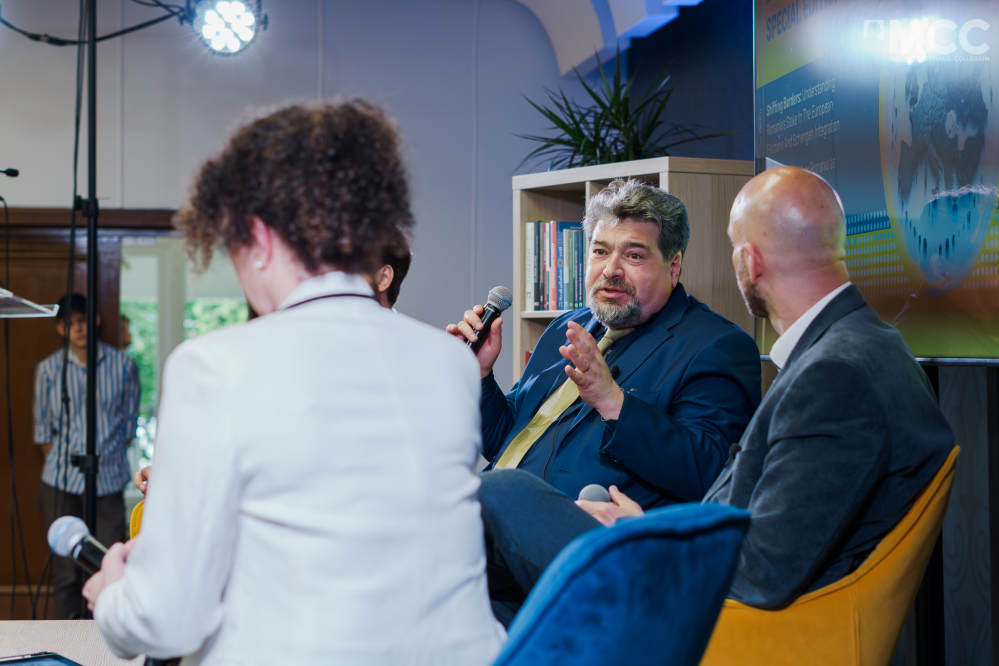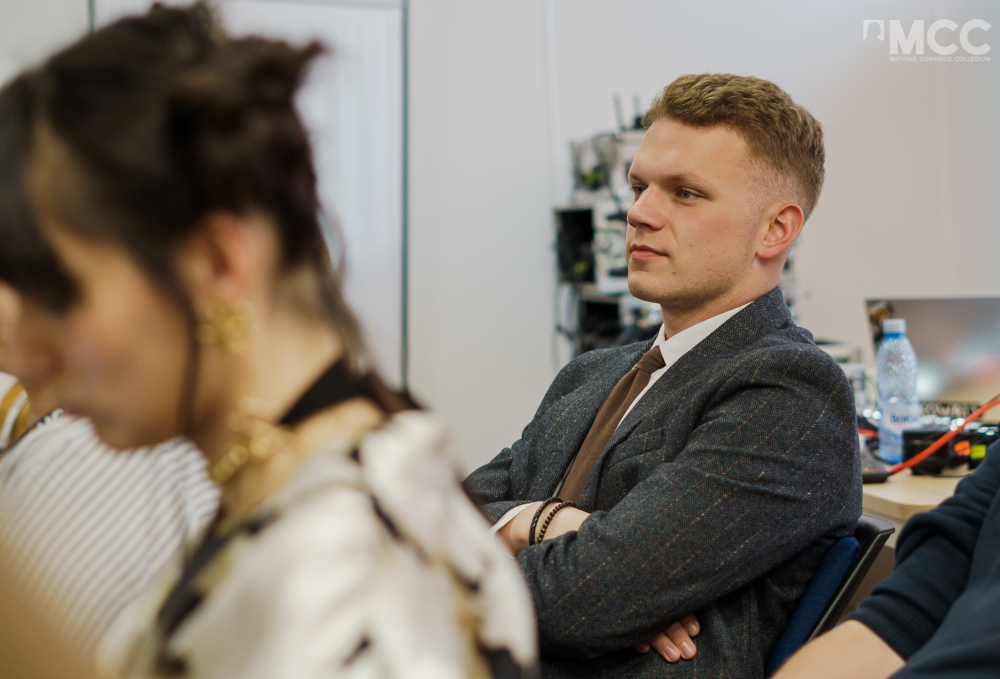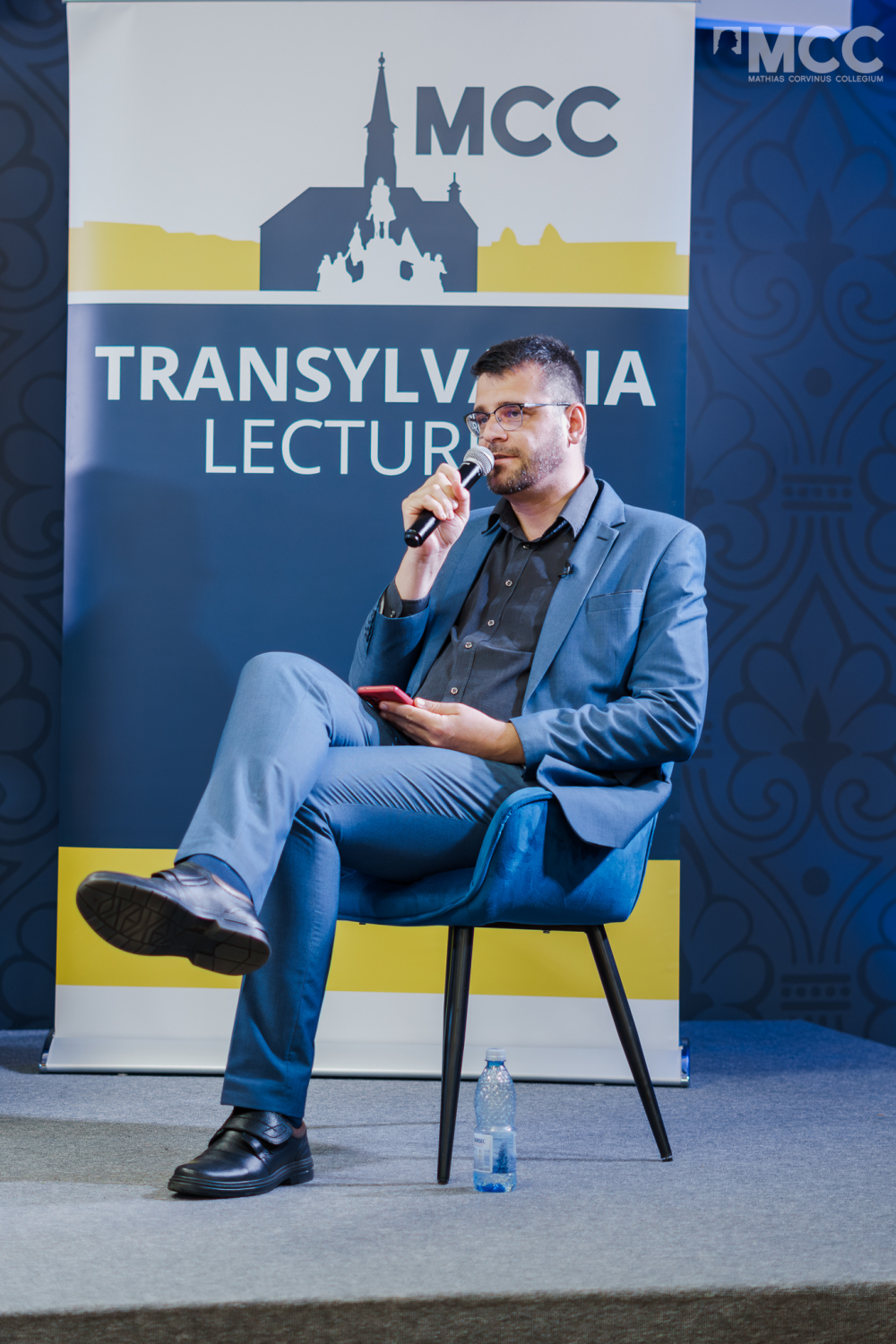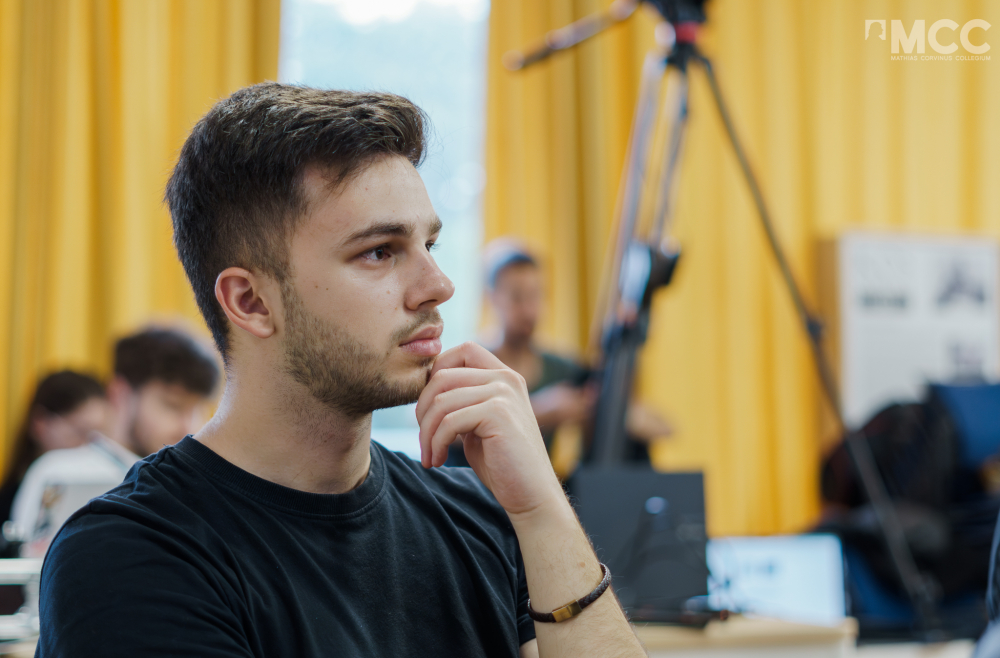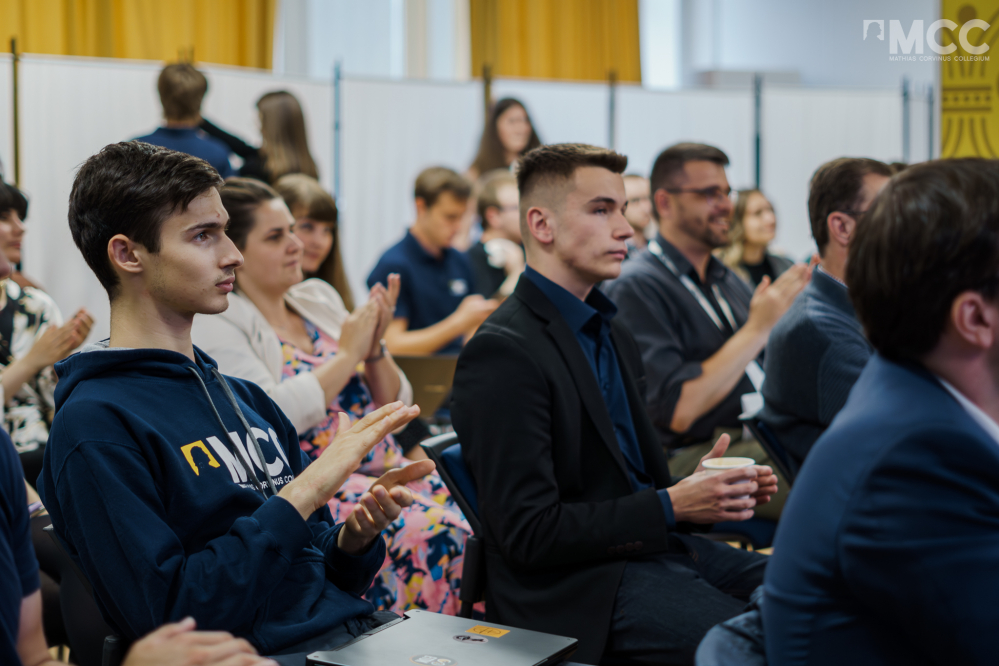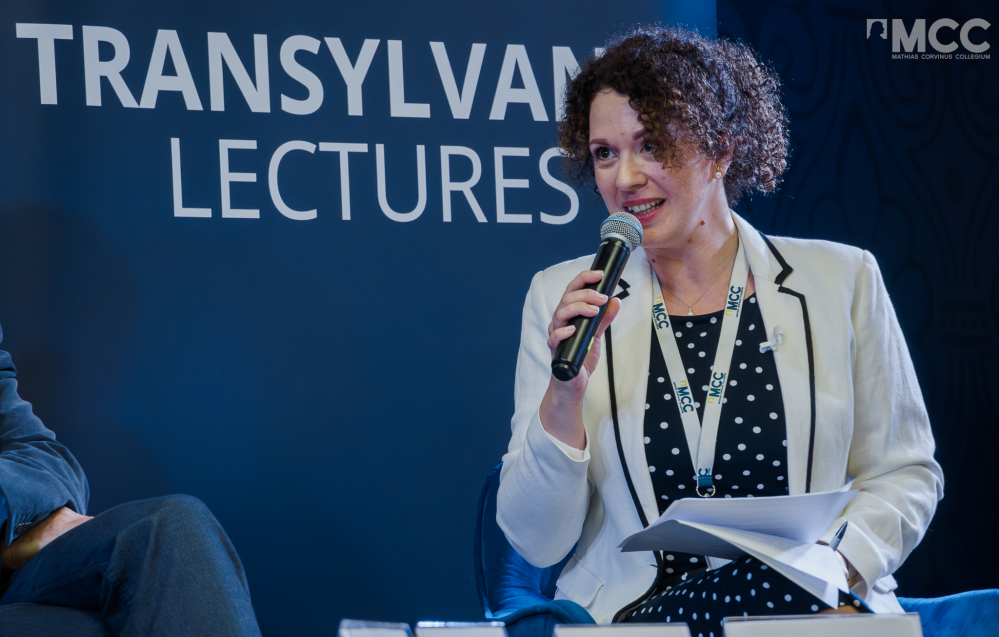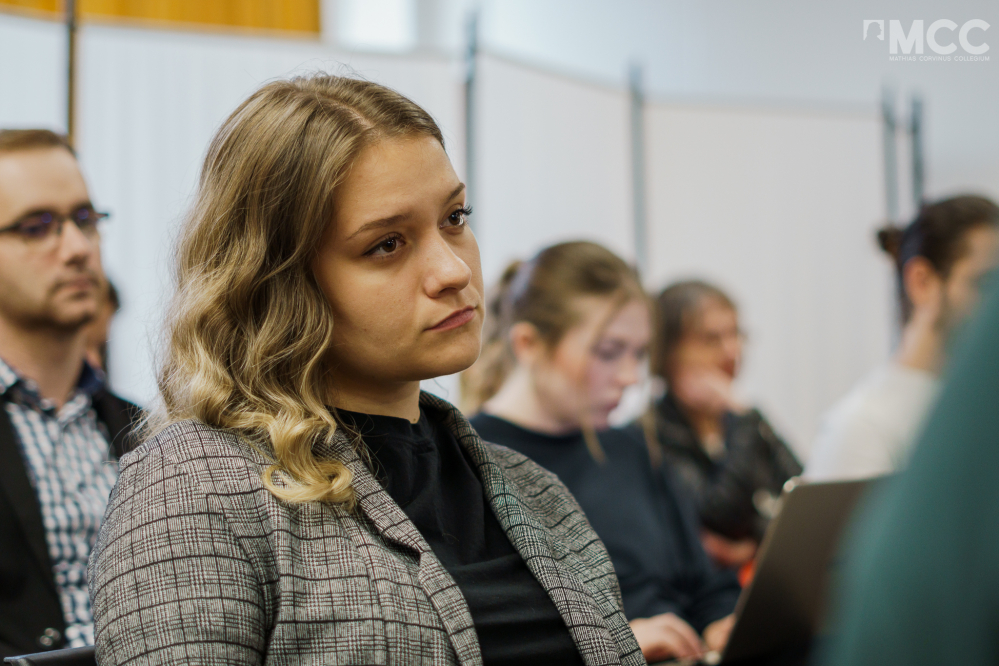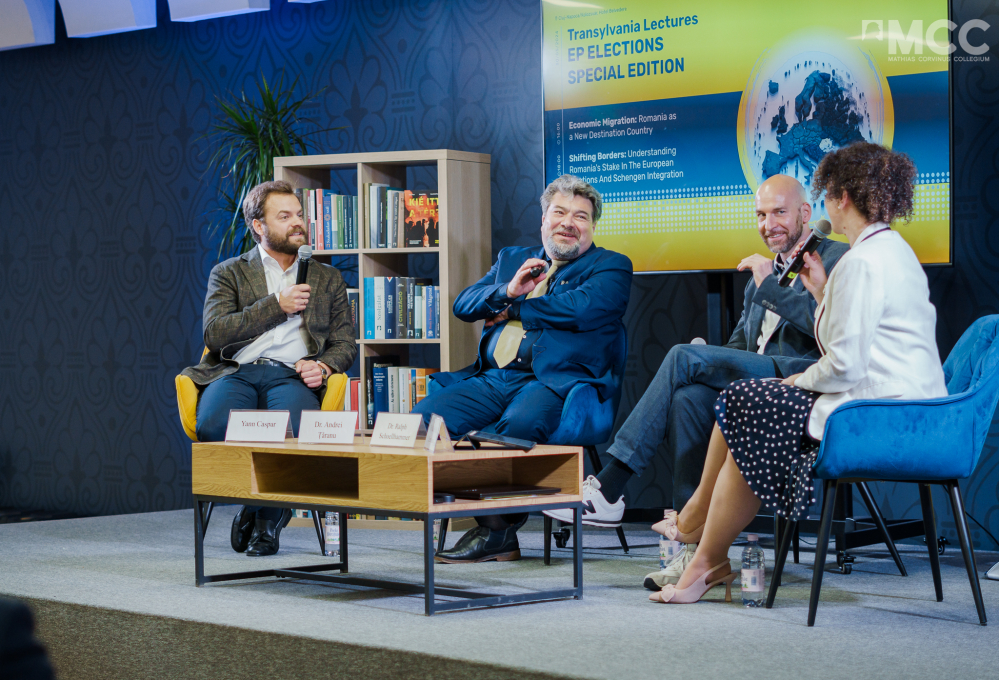Reading time: 5 minutes
Local and international experts analyzed on Thursday 30 May in Kolozsvár/Cluj the issues raised by Romania's accession to the Schengen area and the increasing volume of migration in the country and in Europe at two panel discussions held at the Mathias Corvinus Collegium (MCC). The special edition of the Transylvania Lectures series was dedicated to the upcoming European Parliament elections and focused on key questions affecting Romania and Europe.
Romania and Bulgaria's accession to the Schengen area has been dragging on for years. At the same time, there is still no solution to the problem of labor migration. These two topical issues were discussed by experts at the MCC event in Kolozsvár/Cluj. The special thematic edition of Transylvania Lectures was opened by Agnieszka Kolek, head of cultural relations at the MCC center in Brussels.
The participants of the first panel discussion, Shifting Borders: Understanding Romania's Stake in the European Elections and Schengen Integration, were Yann Caspar, lawyer, journalist, author, and researcher at the MCC Centre for European Studies, Dr Ralph Schoellhammer, assistant professor in economics and political science at Webster University and Dr Andrei Țăranu, political scientist, researcher and lecturer at the Department of Political Studies, University of Bucharest. The discussion was moderated by Dr Máthé Réka Zsuzsánna, senior researcher at the MCC.
Most recently, Austria's veto prevented Romania and Bulgaria from fully joining the Schengen area. The country’s condition is to have adequate protection of the EU's external borders. According to Ralph Schoellhammer, the veto actually has an internal political background in Austria: since 2015, opposition to open borders has been an instinctive reaction, and the government did not want to oppose public opinion. According to the Austrian expert, the sentiment is not directed against Romania, but against illegal immigration in general.
According to Andrei Țăranu, Austria's veto is hypocritical, because while it refuses Romania and Bulgaria for security reasons, it has no problem accepting Croatia with its much longer coastline. The political scientist worries that Austria's internal political fights will have repercussions for European foreign policy, as maintaining borders reminiscent of 30 years ago will only further hamper economic development. In this situation, Țăranu said, Romania and Bulgaria look like second-class members of the EU. The solution requires the right policies, and people can contribute to this by voting, he added.
Yann Caspar agreed that there will not be a solution to the Schengen problem any time soon, as the game of opening and closing borders is constant. The speaker added that currently trucks can spend 16-20 hours at the borders, which is not sustainable economically, but border policies need to be managed wisely for security reasons.
The participants in the second panel discussion, Economic Migration: Romania as a New Destination Country, were Lorenzo Bernasconi, research fellow at the Machiavelli Center for Political and Strategic Studies, Dr Toma Burean, political scientist, head of the Romanian Center for Comparative Migration Studies and Dr Béla-Gergely Rácz, economist, assistant professor at Babeş-Bolyai University, Faculty of Economics and Business Administration. The moderator of the discussion was Márk Vargha, senior analyst at MCC Migration Research Institute.
Toma Burean reported that in 2023 there were around 400,000 foreign workers living in Romania, mostly from Southeast Asian countries such as Sri Lanka, Nepal and Bangladesh. It is the private sector that is mainly calling for an increase in the number of work permits due to the significant labor shortage, while politicians prefer to avoid the subject in public. In many cases, migrants are paid less, have inadequate housing and cannot change jobs without their employers' consent. “There are a lot of small examples of improvement, that can make integration easier for immigrants,” he added.
“Immigration is not a new phenomenon, but we never had this many people in the history of mankind and travel was never this fast and easy. What we are experiencing is something unprecedented,” said Lorenzo Bernasconi. The Italian expert also shared his own experiences with Romanian citizens working in his country. He said the second generation of immigrants is indistinguishable from Italians because they speak the language perfectly, attend universities and some have even entered parliament.
A quarter of the population has emigrated from Romania in recent decades, causing huge problems for society. Béla-Gergely Rácz highlighted the economic disadvantages of labor shortages and emigration. For example, the pension and health systems depend on active workers, and if the workforce leaves the country, the system faces serious problems for which there are still no solutions.
During the discussion, participants stressed that there are many unanswered questions causing tensions across Europe and that it is therefore essential to have a real debate on migration, regardless of positions.
“We believe it is important that MCC events provide space for the issues that concern or even divide society today. At the Transylvania Lectures, both professionals and interested members of the public can freely contribute to and debate social, economic and academic issues,” said Botond Talpas, general director of MCC in Transylvania. The director underlined that it was particularly useful to discuss the processes in Romania and Europe, the Schengen accession and the challenges of immigration before the European parliamentary elections and said that MCC will continue to create such meeting places.
